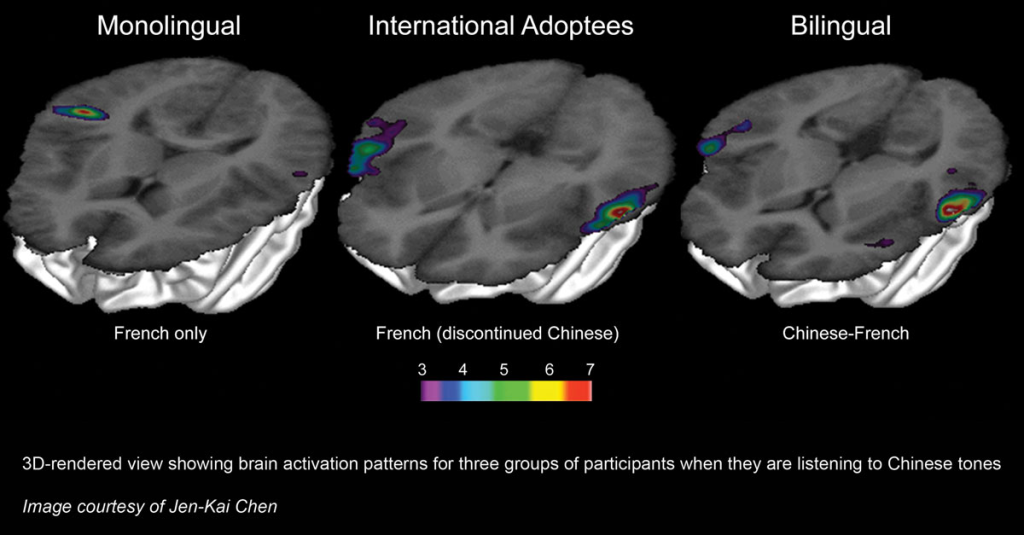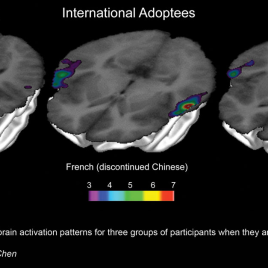
A 3D-rendered view showing brain activation patterns for three groups of participants, French monolinguals (left), French monolinguals with childhood exposure to Chinese (middle), and French-Chinese bilinguals (right), when they are listening to Chinese tones. Individuals with childhood exposure to Chinese display similar activation patterns to bilinguals despite discontinued exposure to Chinese. (Credit: Image courtesy of Jen-Kai Chen)
A new study shows that our brains light up when we hear a language we once knew, even if we no longer understand it.
The study used functional magnetic resonance imaging (fMRI) to study the brains of three groups of children: those who spoke only French, those who were bilingual in French and Chinese, and those who heard Chinese before the age of three but now hear and speak exclusively French. When listening to tonal sounds associated with Chinese (but not French) a part of the brain called the left superior temporal gyrus lit up in the latter two groups, but not in the first group.
These findings suggest that memories of our first language have a special status and are not overwritten by later memories.
Original research paper published in PNAS on November 17, 2014.
Names and affiliations of selected authors


